According to the California Infant/Toddler Learning & Development Foundations, social and emotional development includes…..the developmentally and culturally appropriate ability to:
For this area of the MAP, research, tools, articles, resources and websites have been gathered to help explain and support the social and emotional development of children from birth through adolescence.
11 Ways to Encourage Friendship Skills and Social Play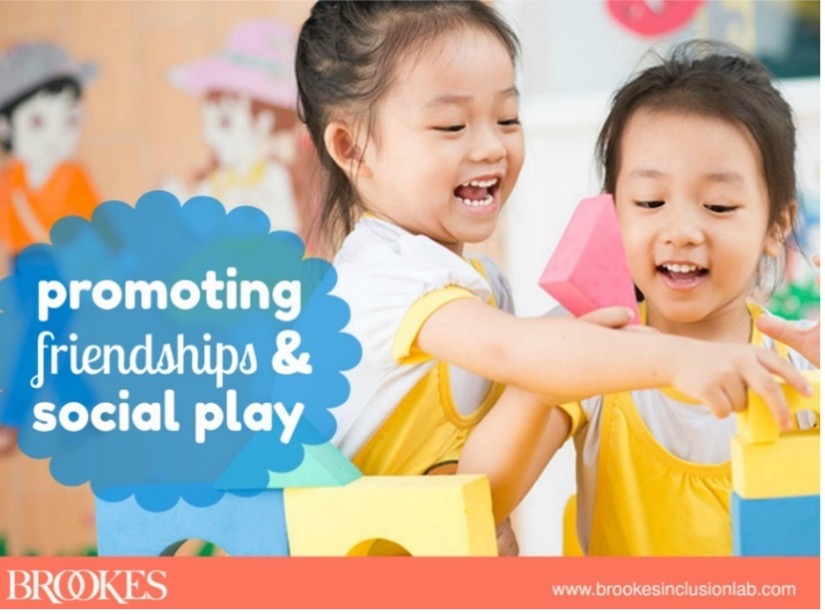
Brookes Publishing | September 4, 2018 Friendship and social play skills are key capabilities for young kids to develop in the early years of school—they form the foundation of long-term success in school and in the community. In your inclusive classroom, you’ll probably have students who need some extra support to develop and strengthen these skills. Today’s post gives you some tips and activity ideas you can use to promote friendships and encourage social play among children with and without disabilities.
Added: Mar 2022
3 Brain Break Ideas to Help Students Reset and RefocusOctober 2021Many educators use brain breaks as a powerful classroom management tool. Research shows that brain breaks allow young minds to reset and recharge. They replenish the attention, motivation, and energy levels needed to keep learning. Students also learn better when lessons are broken up into smaller segments. This is especially true for younger children, whose attention spans are still developing.
Here are three brain-break ideas from leading SEL organizations that you can use in your classroom to help your students refocus and be ready to learn.
- Body Scan
- Calm Breathing Techniques
- Growth Mindset Musical Plates
Added: Oct 2021
49 Phrases to Calm an Anxious ChildIt happens to every child in one form or another – anxiety. As parents, we would like to shield our children from life’s anxious moments, but navigating anxiety is an essential life skill that will serve them in the years to come. In the heat of the moment, try these simple phrases to help your children identify, accept, and work through their anxious moments.
Added: Sep 2016
A 4 part System for Getting to Know Your StudentsRelationship building is key to good teaching. This system will help you quickly get to know students and benefit from those connections all year.
From the Cult of Pedagogy website
Added: Oct 2017
A review of the literature on social and emotional learning for students ages 3–8: Characteristics of effective social and emotional learning programsThe purpose of the report series is to summarize the benefits of social and emotional learning (SEL) in early childhood, and identify the characteristics of SEL interventions that are effective in school contexts. Responding to a need expressed by the Early Childhood Education Research Alliance, the research team conducted a systematic review and synthesis of recent research reviews and meta-analyses on the topic of SEL. The review identified effective SEL programs, strategies, and implementation practices. These effective components include aspects of program design, teacher training and technical assistance, and integration of SEL with existing structures.
Added: Apr 2017
ACES Too High
ACES Too High is a news site that reports on research about adverse childhood experiences, including developments in epidemiology, neurobiology, and the biomedical and epigenetic consequences of toxic stress. We also cover how people, organizations, agencies and communities are implementing practices based on the research. This includes developments in education, juvenile justice, criminal justice, public health, medicine, mental health, social services, and cities, counties and states.
-
Additional ACES Too High Resources
- The Secret to Fixing School Discipline? Change the Behavior of Teachers
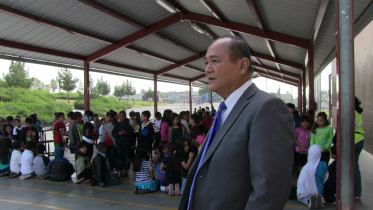 Two kindergarteners at Cherokee Point Elementary School in San Diego’s City Heights neighborhood get into a fight on the playground. Their teacher sends them to the principal’s office. Instead of suspending or expelling the six-year-olds, as happens in many schools, Principal Godwin Higa ushers them to his side of the desk. He sits down so that he can talk with them eye-to-eye and quietly asks: “What happened?” He points to one of the boys. “You go first.”
Two kindergarteners at Cherokee Point Elementary School in San Diego’s City Heights neighborhood get into a fight on the playground. Their teacher sends them to the principal’s office. Instead of suspending or expelling the six-year-olds, as happens in many schools, Principal Godwin Higa ushers them to his side of the desk. He sits down so that he can talk with them eye-to-eye and quietly asks: “What happened?” He points to one of the boys. “You go first.”
- Five Minute Video Primer about the Adverse Childhood Experiences Study (Video)
Published: April 2016 | 5 minutes
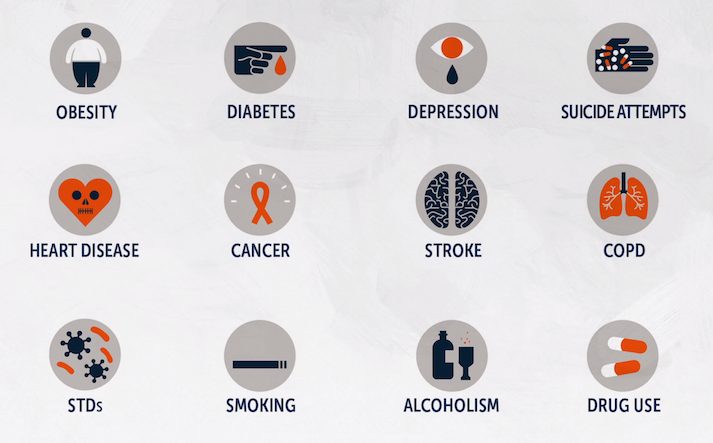 Many people have been asking for a short video that explains the CDC-Kaiser Permanente Adverse Childhood Experiences Study, the groundbreaking epidemiological research that revealed the link between childhood trauma and the adult onset of chronic disease, mental illness, violence and being a victim of violence.
Many people have been asking for a short video that explains the CDC-Kaiser Permanente Adverse Childhood Experiences Study, the groundbreaking epidemiological research that revealed the link between childhood trauma and the adult onset of chronic disease, mental illness, violence and being a victim of violence.
- England and Wales produce new animation about ACEs & resilience (Video)
Published: May 2017 | 5:43 minutes
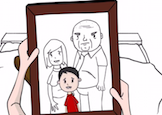 Adverse Childhood Experiences (ACEs) are those that directly harm a child; such as physical, verbal and sexual abuse or physical or emotional neglect – as well as those that affect the environment where they grow up; including parental separation, domestic violence, mental illness, alcohol abuse, drug use or incarceration.
Adverse Childhood Experiences (ACEs) are those that directly harm a child; such as physical, verbal and sexual abuse or physical or emotional neglect – as well as those that affect the environment where they grow up; including parental separation, domestic violence, mental illness, alcohol abuse, drug use or incarceration.
Added: Sep 2016 | Updated: Jul 2019
Aha Parenting!Dr. Laura Markham is a clinical psychologist turned parenting coach and author who promotes a relationship-based model of parenting. Dr. Laura's book Peaceful Parent, Happy Kids: How to Stop Yelling and Start Connecting supports parents to manage their own emotions, both to deal mindfully with a distressed child and to teach the child successful emotional regulation by modeling.
She takes the controversial position that parents need to move "beyond discipline" because punishment erodes the parent child bond, instead setting limits with empathy, focusing on connecting with the child, and coaching for emotional intelligence, all of which help children want to cooperate. She frequently quotes the Dalai Lama: "Be kind whenever possible. It is always possible."
The Aha Parenting! web site based on the work of Dr. Laura Markham provides easy to read information on the "ages and stages" of child development beginning with pregnancy and birth, tips on parenting and an archive of her radio shows on parenting. Here's a link to the latest entry of her parenting blog:
Added: Apr 2015
American Academy of Pediatrics: Addressing Early Childhood Emotional and Behavioral ProblemsDecember 2016
A new
technical report and policy statement from the American Academy of Pediatrics (AAP) provide information about the prevalence of emotional, behavioral, and relationship problems among very young children; the long lasting consequences of these early problems across multiple domains; and effective, safe treatments that are available to enhance outcomes for young children experiencing mental health problems and their families.
Added: Jan 2017 | Updated: Feb 2019
American Psychological Association
- Resilience Booster: Parent Tip Tool
In order to help parents and caregivers combat environmental stressors that can take cognitive, emotional, physical and social tolls on children and their families, the Resilience Booster: Parent Tip Tool is a new resource which highlights ways they can help children build resilience in their homes, neighborhoods and communities, as well as in child care and school settings. The Resilience Booster: Parent Tip Tool is available online.
Added: Sep 2016
Bag the Behavior ChartsDespite our good intentions, there are significant problems with using these class-wide behavior charts as a means of helping young children self-regulate, remain engaged, and control their impulses.
Added: Dec 2019
Big Feelings Play List (Videos)Sesame Street in Communities | February 2020Playlist from Sesame Street includes 5 videos with Sesame Street characters talking about Exploring Big Feelings, Naming Feelings, Feelings Have Names, Hugging It Out, Singing It Out
Added: Mar 2022
Books Build Connections Tool KitThe American Academy of Pediatrics is promoting and supporting early literacy and early learning for children. The Books Build Connections Tool Kit has publications with information and tips for pediatric professionals and families to support early learning. Encourage families to talk, read, and sing with their children! Toolkit items are available to print, download, or share via social media.
Added: Apr 2015
Bright Futures: Developmental Tools for Providers and FamiliesBased on Bright Futures in Practice: Mental Health, the four developmental tools offer a framework for providers and families to begin a conversation together about how to best support healthy social and emotional development in children and teens. The tools gently encourage families who have any questions or concerns to “check it out”—and offer a number of tips on when, where and how to seek help through local, state or national resources. Written in family friendly language, the tools may be used by families and professionals in a range of disciplines including, health, education, child care and family services.
Added: Apr 2015
Brookes Publishing
For 27 years, Brookes has published highly respected resources in early childhood, early intervention, inclusive and special education, developmental disabilities, learning disabilities, communication and language, behavior, and mental health.
Added: Apr 2015 | Updated: Aug 2019
Bullying-How Social and Emotional Learning (SEL) Can Help Prevent Bullying (Webinar)August 2018
This interactive webinar from the Children’s Safety Network focused on the latest research on bullying among children and adolescents and explored strategies for using social and emotional learning (SEL) to prevent bullying. Social and emotional learning helps children and adolescents to manage their emotions, empathize with others, and develop positive relationships. (1) It provides an important framework for schools to use in helping students acquire and strengthen social and emotional skills to prevent bullying behaviors and support inclusion and respect. (2) Catherine Bradshaw, Ph.D., M.Ed. of the University of Virginia and Tracy Waasdorp, Ph.D., M.Ed of the Children’s Hospital of Philadelphia and the Johns Hopkins Bloomberg School of Public Health described their research and practice in applying social and emotional learning to the prevention of bullying.
Added: Sep 2018
Bullying-Recognize, Respond, Report: Preventing and Addressing Bullying of Students with Special Needs (PDF)Bullying in schools affects a high percentage of students with disabilities, affecting their ability to focus, learn, and thrive in inclusive classrooms. This excerpt from Recognize, Respond, Report illuminates the prevalence of bullying and disability-based harassment in schools, helps you distinguish bullying from normal childhood conflict, and outlines the legal protections students with disabilities are entitled to.
Added: Sep 2018
Center for Early Childhood Mental Health Consultation (ECMHC)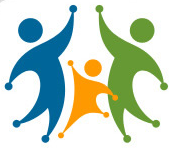
The Center for Early Childhood Mental Health Consultation (CECMHC) was funded as an Innovation and Improvement Project by the Office of Head Start in October 2008. The 3-year grant brings together a group of university researchers to develop strategies to help Head Start programs build a strong mental health foundation for their children, families and staff. The site houses resources for Head Start mental health consultants, staff, families, administrators and T&TA Providers.
-
ECMHC Resources
Early Identification & Family Engagement
Healthy Mind, Healthy Body
- Taking Care of Ourselves: Stress & Relaxation
Stress is natural and can be inevitable. But stress can take a toll on your health and effectiveness as an early childhood educator or parent. It impacts the quality of care that you can give. When you are too stressed it is difficult to offer the praise, nurturance, and structure your children need.
Social-Emotional & Behavior
Added: Mar 2015 | Updated: Feb 2019
Center for Healthy Minds
Founded by world-renowned neuroscientist Richard J. Davidson, the Center for Investigating Healthy Minds (CIHM) at the Waisman Center, University of Wisconsin-Madison, is a global leader in conducting novel research that has revolutionized how we understand the mind, our emotions, and how to nurture well-being for ourselves and others.
Added: Sep 2016 | Updated: Feb 2019
Center for Inclusive Child Care: Social and Emotional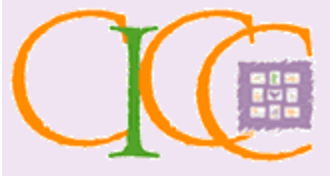
Added: Dec 2019
Center for Parent Information and Resources (CPIR)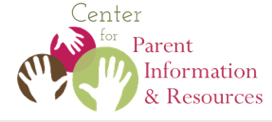
The Center for Parent Information and Resources (CPIR), produced under the US Department of Education Office of Special Education, serves as a central resource of information and products to the community of Parent Training Information (PTI) Centers and the Community Parent Resource Centers (CPRCs), so that they can focus their efforts on serving families of children with disabilities. The site provides resources by topic area, some in English and Spanish and when available, by state.
-
Additional Resources from CPIR
- Trauma Informed Resource Collection Dec 2018
- Tools That Empower Spanish Speaking Families
- Index to Resources in Spanish for English speakers and link to the index that is entirely in Spanish
- A Resource Collection on Positive Behavior Supports, Functional Behavioral Assessment, and School Discipline Nov 2017
Welcome to this collection of resources on positive behavior supports and discipline of children with disabilities. The collection has been developed by a team of Parent Centers, specifically for the Parent Center network to use in their work supporting and empowering parents and families of children with disabilities.
- Rare Disorders: Disability Fact Sheet Published: June 2017
Roughly 7,000 rare diseases/disorders have been identified as affecting the human race. Because they are rare, it can be a real challenge for a person to be accurately diagnosed. Finding effective treatments, especially medicine, can also be a challenge—and for the same reason. Rareness.
If you have a rare disease, know someone who does, or work with people who might, here’s a core of resources we hope are helpful.
- Parent Technical Assistance Centers
Parent centers work to improve educational outcomes for children and youth with all disabilities (emotional, learning, mental, and physical). There are ten parent centers in California.
- Fact Sheet on the Rights of Immigrant Children
- NICHCY's New Home Sept 2014
September 30, 2014 was NICHCY's last day after more than 20 years of service. Happily, most of NICHCY's resources will stay in their new home at the Center for Parent Information and Resources.
- Developing culturally Responsive Approaches to Serving Diverse Populations: A Resource Guide for Community-Based Organizations Mar 2017
This 30-page resource guide, produced by the National Research Center on Hispanic Children and Families, identifies easily accessible resources on cultural competency that CBOs can use to become more responsive to the needs of their targeted populations, and to help attract funds to support their important work.
Added: Oct 2014 | Updated: Jul 2019
Center for the Promotion of Social & Emotional Learning (CPSEL)Our mission is to promote social and emotional learning and character development, bridging the gap between research and practice by providing evidence-based professional development, consulting, coaching and resources to educators and practitioners in formal and informal settings.
Added: Sep 2018 | Updated: Feb 2019
Center of Excellence for Infant and Early Childhood Mental Health ConsultationSeptember 2019
With its new website launched in September 2019, the Center aims to IMPACT the field of IECMHC by supporting the GROWTH and ADVANCEMENT of the profession. IECMH consultants support professionals in early care and education, home visiting, early intervention and other early childhood settings. The CoE provides technical assistance to programs, communities, states, territories, and tribal communities, and individual mental health consultants to increase access to high-quality mental health consultations throughout the country.
- What is Infant and Early Childhood Mental Health Consultation? Find out what IECMH Consultants do?
- Equity
Learn about disparities in the experiences of young children of color and children from other marginalized communities in early childhood settings; discover strategies for IECMHC to impact early childhood professionals’ beliefs, attitudes, and practices to support more effective caregiving for all children, regardless of race, ethnicity, gender, class, or a myriad of demographic characteristics; and better understand policies and procedures, including data collection and analysis procedures, to bridge disparities. The web page includes research, position statements, guidance and applications and tool kits.
Added: Dec 2019 | Updated: Feb 2021
Center of Excellence for Infant and Early Childhood Mental Health Consultation (IECMHC)
The Center of Excellence for IECMHC helps communities support the success of the next generation by increasing access to evidence-based IECMHC.
Added: Jun 2017
Center on Enhancing Early Learning Outcomes (CEELO): Suspension & ExpulsionAdded: Apr 2017 | Updated: Feb 2019
Center on the Developing Child, Harvard University | Social-Emotional Behavior
Early childhood is a time of both great promise and considerable risk. Assuring the availability of responsive relationships, growth promoting experiences, and healthy environments for all young children helps build sturdy brain architecture and the foundations of resilience.
- Let's Tell the World About #ServeAndReturn! Jul 2019
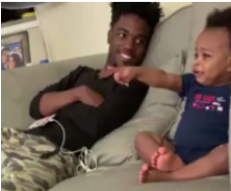 Did you see the video of the father and his baby on social media talking to one another? It was not only entertaining, but also a great example of “serve and return.” The Center for the Developing Child is taking full advantage of this video and has included the video in it’s framework for explaining ‘serve and return’.
Did you see the video of the father and his baby on social media talking to one another? It was not only entertaining, but also a great example of “serve and return.” The Center for the Developing Child is taking full advantage of this video and has included the video in it’s framework for explaining ‘serve and return’.
- What is Early Childhood Development? A Guide to the Science Mar 2019
This guide leads you through video and research resources that bring to life the importance and scientific rationale for investing in early childhood as well as providing strategies for service providers, teachers and families.
- Training Module: Talk with Me Baby
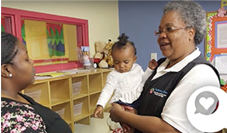 Learn how to empower and support families so that they can engage in meaningful conversations with their young children and advance their language and lifelong learning. The eight-session "Talk With Me Baby" course, which includes multimedia content from the Center on the Developing Child, is open to the public and available through Cox Campus and Read Right from the Start, a program of the Rollins Center for Language & Literacy.
Learn how to empower and support families so that they can engage in meaningful conversations with their young children and advance their language and lifelong learning. The eight-session "Talk With Me Baby" course, which includes multimedia content from the Center on the Developing Child, is open to the public and available through Cox Campus and Read Right from the Start, a program of the Rollins Center for Language & Literacy.
- 5 Steps for Brain-Building Serve and Return
Child-adult relationships that are responsive and attentive—with lots of back and forth interactions—build a strong foundation in a child’s brain for all future learning and development. This is called “serve and return,” and it takes two to play! Follow these 5 steps to practice serve and return with your child.
-
Additional Resources from Center on the Developing Child
- 8 Things to Remember About Child Development
- The Spectrum of Neglect: Four Types of Unresponsive Care
Using science as a guide, this interactive chart delineates four types of diminished responsiveness and their consequences in order to provide a useful framework for developing more effective strategies to protect vulnerable children from this complex challenge. The four short video clips below, each under a minute in length, are excerpts from the 6-minute video InBrief: The Science of Neglect. The chart is based on a graphic from The Science of Neglect: The Persistent Absence of Responsive Care Disrupts the Developing Brain, a Working Paper from the National Scientific Council on the Developing Child.
- Enhancing and Practicing Executive Function Skills with Children from Infancy to Adolescence
Executive function and self-regulation (EF/SR) skills provide critical supports for learning and development, and while we aren't born with these skills, we are born with the potential to develop them through interactions and practice. A new 16-page guide describes a variety of activities and games that represent age-appropriate ways for adults to support and strengthen various components of EF/SR in children. Each chapter of this guide contains activities suitable for a different age group, from infants to teenagers. The guide may be read in its entirety (which includes the introduction and references) or in discrete sections geared to specific age groups.
- Downloadable resources including 8 Working Papers
- Tipping the Scales: The Resilience Game Have fun while testing your knowledge of the most effective ways that communities can build resilience in children.
- Building Core Capabilities for Life (PDF)
This report combines research from the biological and behavioral sciences with practical, on-the-ground knowledge from working with adults and families to provide effective solutions for helping individuals develop more effective skills for coping with adversity.
Added: Jul 2019 | Updated: Jun 2020
Center on the Developing Child, Harvard University: Understanding MotivationAdded: Jul 2019
Child Mind InstituteThe Child Mind Institute is dedicated to transforming mental health care for children everywhere. Founded by Dr. Harold S. Koplewicz, Brooke Garber Neidich, and Debra G. Perelman, our organization is committed to finding more effective treatments for childhood psychiatric and learning disorders, building the science of healthy brain development, and empowering children and their families with help, hope, and answers. Website offers tools for parents worried about a child's mood, behavior, or success in school including: Mental Health guide, Symptom Checker, Developmental Milestones, Quick Facts on disorders and a Glossary of useful terms.
Added: Sep 2016
Child Trauma AcademyThe ChildTrauma Academy is a unique collaborative of individuals and organizations working to improve the lives of high-risk children through direct service, research and education. A major activity of the CTA is to translate emerging findings about the human brain and child development into practical implications for the ways we nurture, protect, enrich, educate and heal children. The "translational neuroscience" work of the CTA has resulted in a range of innovative programs in therapeutic, child protection and educational systems.
Added: Apr 2015
Child Trends
Child Trends is a nonprofit, nonpartisan research center that provides valuable information and insights on the well-being of children and youth. For more than 35 years, policymakers, funders, educators and service providers in the U.S. and around the world have relied on our data and analyses to improve policies and programs serving children and youth. Our team of experts brings together a range of educational, work, policy and cultural experiences to provide cutting-edge research on issues affecting children from birth to early adulthood. Our work is supported by foundations; federal, state and local government agencies; and by nonprofit organizations. - See more at:
http://www.childtrends.org/about-us/#sthash.bcRKL2Oc.dpuf
-
Additional Resources from Child Trends
- Supporting Children and Parents Affected by the Trauma of Separation June 2018
- The prevalence of adverse childhood experiences (ACES) nationally, by state and by race or ethnicity Feb 2018
- Three videos demonstrating the needs of very young children for healthy development (Videos) July 2018
- A State Multi-Sector-Framework for Supporting Children and Youth with Special Needs July 2018
According to the 2016 National Survey of Children’s Health (NSCH), over 19 percent of children in the United States from birth through age 17 are children and youth with special health care needs (CYSHCN). As this diverse group experiences (or may be at increased risk for) chronic physical, developmental, behavioral, or emotional health conditions, they rely on a wide range of supports to meet their health, education, employment, and other needs. However, gaining access to such supports can be a complex challenge for families as they navigate different health insurance and financial assistance programs; coordinate health services across primary care physicians, specialty care providers, and schools; and seek services that support inclusion in education programs, the workforce, and the broader community as young people transition into adulthood. This report describes the current status of services for this population and suggests a framework for improving access to services and supports.
- 5 Questions Families Should Ask About School Discipline Sept 2017
- Understanding and Addressing the Early Childhood Origins of "Mean" Behavior and Bullying: Resources for Practitioners
This Research Brief is based on the longer report: Bullies in the Block Area: The Early Childhood Origins of "Mean" Behavior. This brief first provides a summary of the developmental trajectory to bullying behavior and theories about social and environmental contributors to bullying. The remainder summarizes promising strategies and evidence-based intervention models designed to prevent bullying by addressing factors that contribute to the development of "mean" behavior and aggression in early childhood.
- Five Ways Trauma Informed Care Supports Children's Development
This news bulletin describes childhood trauma and explains the importance of trauma informed care (TIC) as providing a common language to support children who have been exposed to trauma. It includes links to resources and provides information helpful to parents and everyone who works with children.
Added: Sep 2016 | Updated: Jul 2019
Children and Adults with Attention-Deficit/Hyperactivity Disorder (CHADD)With more than 20,000 members and 200 affiliates nationwide, CHADD is the nation’s leading nonprofit organization serving individuals with Attention-Deficit/Hyperactivity Disorder (AD/HD). Through collaborative leadership, advocacy, research, education and support, CHADD provides science-based, evidence-based information about AD/HD to parents, educators, professionals, the media and the general public. Local chapters in California are listed on this website.
Added: Feb 2015
Children with Challenging BehaviorBrault, L. and T. Phoenix, AZ: CPG Publishing Co. (2005).
This book for ECE professionals, teachers, and parents offers tools, ideas, strategies, and new ways of thinking to help readers become reflective thinkers who act with wisdom rather than react out of frustration when confronted by challenging behavior in a child (or adult).
Added: Apr 2015
Children’s Safety Network Bullying Prevention Guide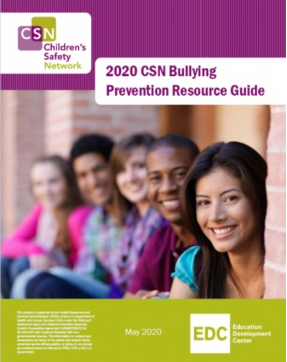
May 2020Bullying during childhood and adolescence is painful when it happens and can have long-lasting effects, both for the bully and the victim. Despite efforts to decrease bullying, the percentage of students reporting being bullied- roughly one in five- has not changed since bullying-related data began being collected by the Centers for Disease Control and Prevention (CDC) through the Youth Risk Behavior Survey (YRBS) in 2011. This guide provides links to a multitude of bullying prevention resources available to you. It is divided into six sections:
- Organizations and Websites;
- Data and Data Sources
- Programs, Campaigns, and Resources;
- Policies, laws and Legislation;
- Publications;
- At-Risk Populations.
Added: Jan 2021
Collaborative for Academic, Social and Emotional Learning (CASEL)The 2013 CASEL Guide identifies well-designed, evidence-based social and emotional learning programs with potential for broad dissemination to schools across the United States. Based on CASEL's work in research and practice spanning nearly two decades, we provide a systematic framework for evaluating the quality of classroom-based social and emotional learning (SEL) programs. In addition, the Guide shares best practices for district and school teams on how to select and implement social and emotional learning programs.
Added: Apr 2015
Collaborative for Academic, Social, and Emotional Learning (CASEL)Collaborative for Academic, Social, and Emotional Learning (CASEL) is the nation's leading organization advancing the development of academic, social and emotional competence for all students. Our mission is to help make evidence-based social and emotional learning (SEL) an integral part of education from preschool through high school. Through research, practice and policy, CASEL collaborates to ensure all students become knowledgeable, responsible, caring and contributing members of society.
Added: Sep 2016
Coping with Trauma: A Collection of Resources (MAP)The tragedy that took the lives of very young children at Sandy Hook Elementary School in Newtown, Connecticut in December 2012 elicited strong feelings and emotions from the entire nation and perhaps especially from those who work with and care for children.
Many of organizations that MAP depends on for quality information responded by gathering resources useful in coping with the trauma. Some of the resources are specific to children with special needs and other are more general. Some of the resources are available in other languages as indicated.
Added: Apr 2015
Culturally & Linguistically Appropriate Services Early Childhood Research Institute (CLAS)The CLAS Institute identifies, evaluates, and promotes effective and appropriate early intervention practices and preschool practices that are sensitive and respectful to children and families from culturally and linguistically diverse backgrounds.
The CLAS Institute identifies, collects, reviews, catalogs, abstracts, and describes materials and practices developed for children and families from culturally and linguistically diverse backgrounds, and professionals who work with them.
Added: Oct 2014
DEC Position Statement on Challenging Behavior and Young ChildrenThe Position Statement on Challenging Behavior and Young Children was approved by the Executive Board! This work includes 8 statements of beliefs around challenging behavior.
Added: Oct 2017
Early Childcare Provider’s Guide to Managing Challenging BehaviorsAutism Speaks has published this toolkit to assist early childcare providers to improve their management of challenging behaviors in the classroom. Although the focus is on children with Autism Spectrum Disorder, the intervention strategies and positive behavioral methods described in the toolkit can be used for any child struggling with attention deficits, intellectual disability, anxiety and delayed social skills.
Added: Nov 2018
Early Childhood Expulsion / Suspension and Opportunity Gaps for Boys of ColorThese two briefs are part of a series of issue briefs commissioned by the Robert Wood Johnson Foundation's Forward Promise Initiative.
Added: Jan 2017 | Updated: Feb 2021
Edutopia: Social and Emotional Learning
Working to improve public schools with resources, tools, and solutions for teachers, administrators, and parents. Find and share resources for creating a healthy school culture by helping students develop skills to manage their emotions, resolve conflicts, and make responsible decisions.
Added: Jul 2016 | Updated: Feb 2019
Edutopia: Suspension & Expulsion
Added: Apr 2017 | Updated: Feb 2019
Empathy and Resilience, Responsibility and Self-Care: Resources for Social and Emotional Learning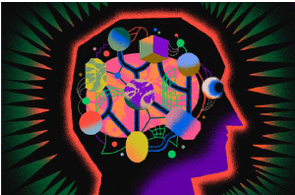
Published: New York Times, Jan 2019
Do you deliberately devote classroom time to
social-emotional learning, or SEL? Does your school address it building-wide? How? Because we know more and more schools are incorporating strategies to bolster these strengths, we have collected recent Times writing that seems to us to speak especially well to the
five SEL “core competencies” as defined by the Collaborative for Academic, Social, and Emotional Learning (
Casel). Before delving into the “core competencies” the article suggests several ways that this information can be used in the work place, in the classroom and in your personal life.
Added: Jul 2019
Encyclopedia on Early Childhood DevelopmentThe Encyclopedia on Early Childhood Development is produced by the Centre of Excellence for Early Childhood Development (CEECD) and the Strategic Knowledge Cluster on Early Child Development (SKC-ECD). Respectively based at the Université de Montréal and Université Laval (Quebec, Canada), these two organizations have built over the years a solid network of international experts who gather, synthesize and comment, in their respective domain of expertise, the most up-to-date scientific knowledge available on the development of young children, from conception to age five. The website is available in English, French, Spanish, Portugese and Russian.
Added: Apr 2015
Fear and Anxiety-An Age by Age Guide to Common Fears, The Reasons For Each and How to Manage Them
It is very normal for all children to have specific fears at some point in their childhood. Even the bravest of hearts beat right up against their edges sometimes. As your child learns more about the world, some things will become more confusing and frightening. This is nothing at all to worry about and these fears will usually disappear on their own as your child grows and expands his or her experience.
In the meantime, as the parent who is often called on to ease the worried mind of your small person, it can be helpful to know that most children at certain ages will become scared of particular things.
Added: Jun 2017 | Updated: Feb 2019
Fostering Healthy Social and Emotional Development: Four New Resources for Communities and Families with Young ChildrenBuilding on prior successful partnerships to promote early brain and language development and early STEM education, the U.S. Departments of Education and Health and Human Services have joined with Too Small to Fail to release a Social and Emotional Toolkit on social and emotional development. All of the resources feature examples of simple actions to take, some of which caregivers might be doing already, such as maintaining consistent routines for young children.
Added: Feb 2017
Fred Rogers CenterThe legacy of Fred Rogers guides everything we do. From the beautiful simplicity of modeling nurturing interactions with young children to the thoughtful use of educational technology, we learn from Fred’s timeless wisdom and approach.
Added: Apr 2017
Free Spirit Publishing
Whether at home, school, or out in the world, all kids face challenges in their lives. No matter how many choices, changes, and opportunities young people encounter, Free Spirit has had the same mission for more than 30 years: to provide children and teens—and the adults who care for and about them—with the tools they need to think for themselves, overcome challenges, and make a difference in the world.
- I’m Happy-Sad Today: Making Sense of Mixed Together Feelings by Lory Britain
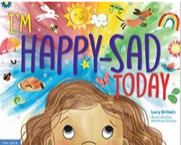 Happy and also sad. Excited but nervous too. Feeling friendly with a little shyness mixed in. Mixed feelings are natural, but they can be confusing. There are different kinds of happy—the quiet kind and the “noisy, giggly, jump and run” kind. And there are conflicting feelings, like proud and jealous, frustrated and determined. With gentle messaging and charming illustrations, a little girl talks about her many layered feelings, ultimately concluding, “When I have more than one feeling inside me, I don’t have to choose just one. I know that all my feelings are okay at the same time.” A special section for adults presents ideas for helping children explore their emotions, build a vocabulary of feeling words, know what to do if they feel overwhelmed, and more.
Happy and also sad. Excited but nervous too. Feeling friendly with a little shyness mixed in. Mixed feelings are natural, but they can be confusing. There are different kinds of happy—the quiet kind and the “noisy, giggly, jump and run” kind. And there are conflicting feelings, like proud and jealous, frustrated and determined. With gentle messaging and charming illustrations, a little girl talks about her many layered feelings, ultimately concluding, “When I have more than one feeling inside me, I don’t have to choose just one. I know that all my feelings are okay at the same time.” A special section for adults presents ideas for helping children explore their emotions, build a vocabulary of feeling words, know what to do if they feel overwhelmed, and more.
Added: Aug 2019
Georgetown University Center for Child and Human Development (GUCCHD)The Georgetown University Center for Child and Human Development (GUCCHD) was established over four decades ago to improve the quality of life for all children and youth, especially those with, or at risk for, special needs and their families.
Added: Apr 2015
Georgia Education Leaders Release New Learning Climate VideosUnless discipline focuses on teaching children how to act appropriately, they won't learn anything from it. Creating a supportive school climate—and decreasing suspensions and expulsions—requires close attention to the social, emotional, and behavioral needs of all students.
But all too often, preschools and early learning centers are left out of conversations about school climate and strategic planning for student discipline.
The Get Georgia Reading Campaign has released a new resource to educate childcare and school staff about embracing a new way of looking at behavior and discipline. Five videos, created for administrators, teachers, parents, policymakers—anyone with a stake in creating healthy classrooms in Georgia—show how to apply positive learning climate practices in everyday, real-life classroom scenarios:
Added: Sep 2016
Great Kids!This educational website, supported by several well-respected organizations and foundations, provides educational resources for parents and educators aimed at preschool through high school. It addresses learning issues, parenting, academics and “the whole child” that includes emotional smarts, early learning, and the child’s brain.
Added: Jul 2016 | Updated: Jan 2021
Greater Good Science Center (University of California, Berkeley)
The Greater Good Science Center studies the psychology, sociology, and neuroscience of well-being, and teaches skills that foster a thriving, resilient, and compassionate society.
Added: Mar 2015 | Updated: Feb 2021
Head Start ECLKC
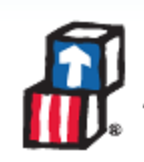
The Head Start Early Childhood Learning & Knowledge Center (ECLKC) helps young children from low-income families prepare to succeed in school through local programs. Head Start and Early Head Start programs promote children's development through services that support early learning, health, and family well-being.
Added: Oct 2017 | Updated: Aug 2019
Head Start ECLKC: Mental Health
Head Start Early Childhood Learning & Knowledge Center (ECLKC) programs support the mental health of children, families, and staff every day. Early childhood mental health is the same as social and emotional well-being. It is a child's developing capacity to express and regulate emotions, form trusting relationships, explore, and learn-all in the cultural context of family and community. The mental health of children and the adults that care for them is essential for school readiness.
Added: Feb 2018 | Updated: Aug 2019
Head Start: Making the Move Together – Transitions During Uncertain TimesFamily engagement is critical to the success of children's transition back to a Head Start program. It becomes even more important during uncertain times, such as a public health crisis or emergency. Share this step-by-step guide with parents to help them prepare their child for the transition from home to a Head Start program. Find tips organized across a timeline.
Added: Oct 2021
How Children’s Social Skills Impact Success in AdulthoodA 20-year retrospective study, funded by the Robert Wood Johnson Foundation and published in the July 2015 issue of the American Journal of Public Health, suggests that kindergarten students who are more inclined to exhibit "social competence" traits—such sharing, cooperating, or helping other kids—may be more likely to attain higher education and well-paying jobs. In contrast, students who exhibit weaker social competency skills may be more likely to drop out of high school, abuse drugs and alcohol, and need government assistance. This brief provides an overview and major findings from this study and implications for further action.
Added: Sep 2016
How to Handle Tantrums and MeltdownsChild Mind Institute“The first thing we have to do to manage tantrums is to understand them. That is not always as easy as it sounds, since tantrums and meltdowns are generated by a lot of different things: fear, frustration, anger, sensory overload, to name a few. And since a tantrum isn’t a very clear way to communicate (even though it may be a powerful way to get attention), parents are often in the dark about what’s driving the behavior.” This article will help you assess the tantrum, change your behavior in response to the tantrum and model calm.
Added: Mar 2022
How to Make This Hard Transition Back to School With Your Students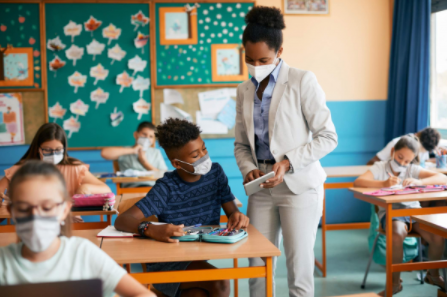
Greater Good | August 18, 2021This year, Greater Good Science Center’s education team partnered with California County Offices of Education to support statewide SEL communities of practice through an emergency grant funded by FEMA. Throughout the pandemic, we have networked, shared online SEL resources, and spotlighted districts’ offerings around staff and student mental health. Here are some of the things we have learned from this work with our educator-colleagues—along with some easy-to-implement, research-based practices and activities you can use to foster a stronger sense of collective well-being in your classroom or school.
Added: Oct 2021
How Unconditional Positive Regard Can Help Make Students Feel Cared ForMind/ShiftAs a teacher, I know how important it is to create clear expectations for my students and hold them to high standards. This also applies to me as I seek to build relationships with my students. The high standards I hold myself to in building teacher-student relationships come from my guiding philosophy: unconditional positive regard. This approach helps ground my equity-centered and trauma-informed work.
Added: Mar 2022
IDEA Infant Toddlers Coordinators AssociationThe Individuals with Disabilities Education Act (IDEA) Infant and Toddler Coordinators Association is organized as a not-for-profit corporation to promote mutual assistance, cooperation, and exchange of information and ideas in the administration of Part C and to provide support to state and territory Part C coordinators. They provide an online link to the resources that are helping to improve the lives of infants and toddlers with special needs.
Added: Apr 2015
Incredible YearsThe Incredible Years are research–based, proven effective programs for reducing children’s aggression and behavior problems and increasing social competence at home and at school. The Incredible Years programs were developed by Carolyn Webster–Stratton, M.S.N., M.P.H., Ph.D., Professor and Director of the Parenting Clinic at the University of Washington. She is a nurse and licensed clinical psychologist and has published numerous scientific articles evaluating training programs for helping families and teachers with children who are highly aggressive, disobedient, hyperactive, and inattentive. She has had extensive clinical experiences helping over 1,000 families whose children were diagnosed with conduct problems and attention deficit disorder.
Added: Apr 2015
Kids in the HouseThe Ultimate Parenting Resource offers over 8000 videos on a comprehensive range of topics for a variety of age ranges for every type of family. Well respected experts present positive, useful information in short videos. For example take a look at the videos from:
- Dr. Dan Siegel , award winning author and lecturer. Dr. Siegel's unique ability to make complicated scientific concepts easy to understand and exciting has led him to be invited to address diverse local, national and international groups of mental health professionals, neuroscientists, corporate leaders, educators, parents, public administrators, healthcare providers, policy-makers, and clergy. Or explore the various topics under:
- Special Needs
- Top Tips for How to Raise a Happy Child
Added: Apr 2015
Learning ModulesInstitute for Learning and Brain Science, University of WashingtonThe I-LABS Outreach and Education talent pool at the University of Washington has produced free learning modules that take an in-depth look at the science of child development. Modules include 20-25 minute narrated PowerPoints with embedded videos, plus a discussion guide and handout. There are over 20 topics including The Importance of Early Interactions, Understanding Emotions, Language Development: Learning the Sounds of Language, Bilingual Language Development, Temperament in Early Childhood, Foundations of Literacy, Development of Literacy, Early Music Experience, Early STEM Learning, Early Numeracy, How Play Helps Math Learning, Spatial Skills and Reasoning, Learning to Make Things Happen, Race Today: What Kids Know as They Grow, and ”Racing” Towards Equality: Why Talking to Your Kids About Race is Good for Everyone.
Added: Feb 2021
Love Talk Play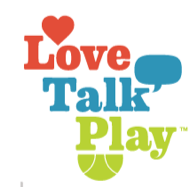
Parents agree they are child's first and most important teachers, but many say they don't know how to make the most of this role to give their children the best possible start in school and life. This website, sponsored by Thrive by 5 Washington, the state's public-private partnership for early learning, aims to surround parents with simple messages about three key things parents need to be doing with their child everyday: Love, Talk, Play!
Added: Feb 2018 | Updated: Dec 2018
Maximizing the potential of early childhood education to prevent externalizing Behavior problems: A meta-analysisEarly childhood education (ECE) programs offer a promising mechanism for preventing early externalizing behavior problems and later antisocial behavior; yet, questions remain about how to best maximize ECE's potential. This site takes you to an abstract of the study that evaluates the most promising strategies that support positive behavior and reduced behavior problems.
Added: Sep 2016
Meditation Helps Lower Truancy and Suspensions (Video)Published: Feb 21, 2012
Surrounded by poverty and escalating violence, a San Francisco middle school committed to peace and embraced a program of meditation that has made students feel safer, teachers more productive, and brought unity and purpose to the school. Click "like" if you enjoyed this video!
Added: Sep 2016 | Updated: Feb 2019
National Association for the Education of Young Children (NAEYC)
The National Association for the Education of Young Children (NAEYC) is the nation’s largest organization of early childhood professionals and others dedicated to improving the quality of early childhood education programs for children birth through age eight. NAEYC’s primary goals are to improve professional practice and working conditions in early childhood education and to build public understanding and support for high-quality early childhood programs.
-
Additional NAEYC Resources
Cultural Competency & Family Engagement
Healthy Mind, Health Body
Policy/Trends
- Public Policy Overview
NAEYC promotes national, state and local public policies that support a system of well-financed, high quality early childhood education programs in a range of settings, including child care centers, family child care homes, and schools.
Social-Emotional & Behavior
- Promoting Social–Emotional Development: Helping Infants Learn About Feelings (PDF)
Starting from birth, infants begin learning how to make sense of their world through interactions with caregivers. Responsive caregiving-which involves caregiver reflecting and validating a child’s feelings and behaviors-help very young children makes sense of their world. Over time, children who have this type of nurturing, reflective care better regulates their emotions.
- 10 Tips for Raising a Compassionate Toddler
Recent research shows that infants and toddlers are far more empathetic than we once thought. While they have short fuses, and don’t cope well with sharing, they are capable of being compassionate. With this in mind, here are ten tips I use in the classroom to help infants and toddlers become pro-social that families can also try at home.
- NAEYC Radio
NAEYC and BAM Radio Network partnered to bring NAEYC Radio. The program was developed to bring the best and latest insights on early childhood education directly to parents and educators.
- 10 tips for Raising a Compassionate Infant Toddler
- Helping Infants Learn About Feelings (PDF)
- Standing Together Against Suspension and Expulsion Joint Policy Statement (PDF)
A group of more than 30 national organizations recently published a joint statement, Standing Together Against Suspension and Expulsion in Early Childhood: A Joint Statement (April 2016), which supports the recommendations from the U.S. Departments of Education and Health and Human services in their December 2014 Joint Policy Statement on Expulsion and Suspension. The organizations have also compiled a number of related resources to help states, districts, communities, and classrooms prevent, limit, and ultimately eliminate suspension and expulsion in early childhood education.
- Caring Relationships: The Heart of Early Brain Development By Ron Lally and Peter Mangione
Added: Aug 2014 | Updated: Feb 2021
National Association for the Education of Young Children (NAEYC): Standing Together Against Suspension and ExpulsionPublished: April 2016
Expulsion in early childhood education is not an intervention. Over a decade of research and data tell us that the policies and practices of suspension and expulsion in early childhood, which disproportionately affect children of color, are causing harm to children and families. Over 30 national organizations came together to create a joint statement that amplifies and elevates the issue. It's time to heed the calls to prevent, limit and eliminate suspensions and expulsions in early childhood education.
In addition to creating the joint statement NAEYC provides resources for teachers, administrators, policymakers, states and districts that offer data, toolkits, models and templates to help change our policies and practices (or download the PDF). Eliminating suspension and expulsion across all states and settings in early childhood education is our collective and systemic responsibility. What will your part be?
Added: Jan 2017 | Updated: Feb 2019
National Center for Pyramid Model InnovationsThe goals of the National Center for Pyramid Model Innovations (NCPMI) are to assist states and programs in their implementation of sustainable systems for the implementation of the Pyramid Model for Supporting Social Emotional Competence in Infants and Young Children (Pyramid Model) within early intervention and early education programs with a focus on promoting the social, emotional, and behavioral outcomes of young children birth to five, reducing the use of inappropriate discipline practices, promoting family engagement, using data for decision-making, integrating early childhood and infant mental health consultation and fostering inclusion.
Added: Jul 2018
National Center for Pyramid Model Innovations (NCPMI) Resource LibraryNational Center for Pyramid Model Innovations Resource Library has been reorganized and updated chronologically so that the very latest resources are shown on page one. You can use the search options as well to find what you are looking for by topic area.
Added: Jun 2021
Pacer.org Bullying and Harassment of Children with DisabilitiesChildren with disabilities are two to three times more likely to be bullied than their nondisabled peers. Here are the top 10 facts that parents, educators and students should know.
Added: Jan 2017
Parent Tool Kit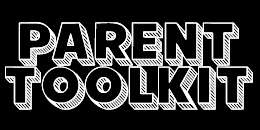
This toolkit, produced by NBC News Education Nation, will help you navigate your child's journey from pre-kindergarten through high school. It is designed to help you track and support progress at each stage. Produced by NBC's Education Nation project, the Parent Toolkit website has comprehensive resources and minute-long videos for parents of kids at every age and grade. The content covers a variety of topics, including health and wellness, academics, and social and emotional development. All the videos and resources are available in both English and Spanish.
Added: Sep 2016 | Updated: Dec 2018
PBS Parents: Helping Toddlers Understand Their EmotionsIt wasn’t so long ago that the conventional wisdom was that babies were pretty much blobs who didn’t think or feel much before they could speak in words around the age of two. The idea that a six-month-old could feel fear or anger, no less sadness and grief, was preposterous. But thanks to an explosion in research on infancy in the last 30 years, we now know that babies and toddlers are deeply feeling beings.
Added: Apr 2017
Pediatric Symptom ChecklistThe Pediatric Symptom Checklist (PSC) is a brief screening questionnaire that is used by pediatricians and other health professionals to improve the recognition and treatment of psychosocial problems in children.
In addition to the original 35-item parent report form of the PSC, there are now many other validated forms including translations of the original form into more than a dozen other languages, a youth self report, a pictorial version, and a briefer 17 item version for both the parent and youth forms. All are available from this website.
Added: Oct 2017
Policy Statement on Expulsion and Suspension Policies in Early Childhood Settings (PDF)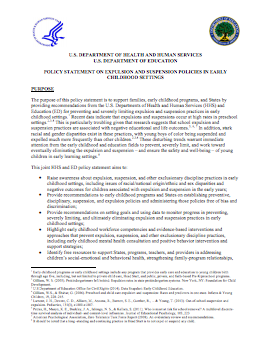
Published: 2016 | Size: 2MB
This Information Memorandum (IM) encourages Lead Agencies to adopt policies set forth in the
Policy Statement on Expulsion and Suspension in Early Childhood Settings issued by the U.S. Departments of Health and Human Services and Education. Appendix 1 offers several free, publicly available resources states can use in their efforts.
Added: Nov 2016 | Updated: Jul 2019
Positive Behavioral Interventions and Supports (PBIS)The TA Center on Positive Behavioral Interventions and Supports has been established by the Office of Special Education Programs, US Department of Education to give schools capacity-building information and technical assistance for identifying, adapting, and sustaining effective school-wide disciplinary practices.
This TA Center provides guidance and tools in developing positive relationships with families of school age children. Below is the link to the area on the website that provides rationale for parent involvement, research, best practices and tips for teachers (School, Family and Community Partnerships) and a link to another area of the site that includes a list of parent training resources and specifically a "Family Engagement Checklist."
Added: Mar 2015 | Updated: Feb 2019
Positive DisciplinePositive Discipline is dedicated to providing education and resources that promote and encourage the ongoing development of life-skills and respectful relationships in family, school, business, and community systems. This site features information and articles from Dr. Jane Nelsen, author of Positive Discipline and other books.
Added: Apr 2015
Preventing Suspension and Expulsion of Young Children in Child Care & Early Education Settings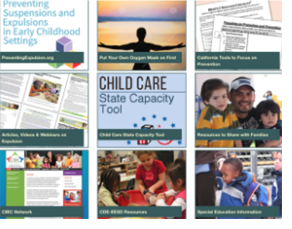
Do you have questions or concerns about a child in your care? The CA CSEFEL (California Collaborative on the Social and Emotional Foundations for Early Learning) has gathered tools and resources to support you! Your role in supporting the child behind the behavior is vital to the long-term outcomes and well-being of that child.
With the passage of
Assembly Bill 752, there is an increased need for tools and materials that can support early care and education programs, particularly California State Preschool Programs, as they work to support ALL children to be successful in their early care and education settings. This website provides resources that may be helpful to implement AB752 requirements. Included are links to websites and tools for program self- assessment, informative webinars and articles, and training and technical assistance projects funded through the California Department of Education, Early Learning and Care Division (ELCD) that may be available to support some programs.
Added: Jun 2018 | Updated: Feb 2019
Preventing Suspensions and Expulsions in Early Childhood Settings: A Program Leader’s Guide to Supporting All Children’s SuccessThe purpose of this guide is to provide relevant, specific recommended policies and practices that are actionable. The recommended policies and practices are based on the most important research for eliminating
suspensions and
expulsions in early childhood settings and were developed with guidance from a panel of national experts. There are many resources for early childhood caregivers, educators, and program leaders on supporting social-emotional development, reducing
challenging behavior, recognizing the role of cultural differences and implicit biases, and eliminating
suspensions and
expulsions. This guide organizes these resources into a coherent and comprehensive framework that is easily accessible.
To help you prioritize what recommended policies and practices are most necessary and timely to implement in your program, we have developed a self-assessment. The
self-assessment is an optional tool that includes a brief questionnaire to help you reflect on your program’s policies, practices, and needs. The results of the self-assessment will help you reflect on your strengths and needs and provide you a roadmap to navigating the guide.
Added: Jan 2017 | Updated: Feb 2021
Preventive OunceThis interactive website lets you see more clearly a child's temperament, find parenting tactics that work.
Added: Apr 2015
Program for Infant Toddler Care (PITC) Six Essential Program PracticesThis series helps promote essential program practices to ensure quality within family child care and center-based programs that serve infants and toddlers. It addresses the following topics:
- Continuity of care
- Culturally sensitive care
- Inclusion
- Individualized care
- Primary care
- Small groups
Added: Oct 2017 | Updated: Feb 2019
Program for Infant Toddler Caregivers (PITC)The PITC website has articles describing appropriate curriculum approaches for very young children as well as information on their training program available in California.
Added: Apr 2015
Public Broadcasting System (PBS) Parents: Challenging BehaviorChallenging behavior in children.
Added: Oct 2016
Pyramid Model Consortium: Suspension and Expulsion ResourcesOn this website find key resources the use the Pyramid Model in addressing equity, how to eliminate expulsion and a webinar to explain it all including: Pyramid Equity Project Fact Sheet, Expelling Expulsion Fact Sheet, and Webinar.
Added: Sep 2016 | Updated: Feb 2021
Recognizing and Addressing Trauma In Infants, Young Children and Their FamiliesCenter for Early Childhood Mental Health ConsultationThe purpose and overall goal of this tutorial is to help early childhood mental health consultants, as well as Early Head Start and Head Start staff, understand what is meant by trauma, recognize the developmental context of trauma in early childhood, and extend their own knowledge for intervention through consultation. Early childhood mental health consultants must be prepared to recognize and address trauma in a way that supports and protects the child and his or her family, enables Early Head Start and Head Start staff to respond effectively, and links children and their families to valuable resources and, when needed, effective therapeutic intervention.
Added: Feb 2021
Reducing suspension and Expulsion Practices in Early Childhood SettingsRecent data indicate that expulsions and suspensions regularly occur in preschool settings. This is a problematic issue given the well-established research indicating that these practices can influence a number of adverse outcomes across development, health, and education. In addition, stark racial and gender disparities exist in these practices, with young boys of color being suspended and expelled at much higher rates than other children in early learning programs. These trends warrant immediate attention from the early childhood and education fields. The U.S. Departments of Health and Human Services and Education issued a policy statement and recommendations to assist states and public and private early childhood programs in partnering to prevent and severely limit expulsions and suspensions in early learning settings. The effort, part of President Obama's My Brother's Keeper initiative, encourages states, early childhood programs, and families to partner in preventing, reducing, and eventually eliminating the expulsion and suspension of young children from early learning programs.
Added: Sep 2016
Resource Guide for Developing Integrated Strategies to Support Social and Emotional Wellness in Children (During the COVID-19 Pandemic)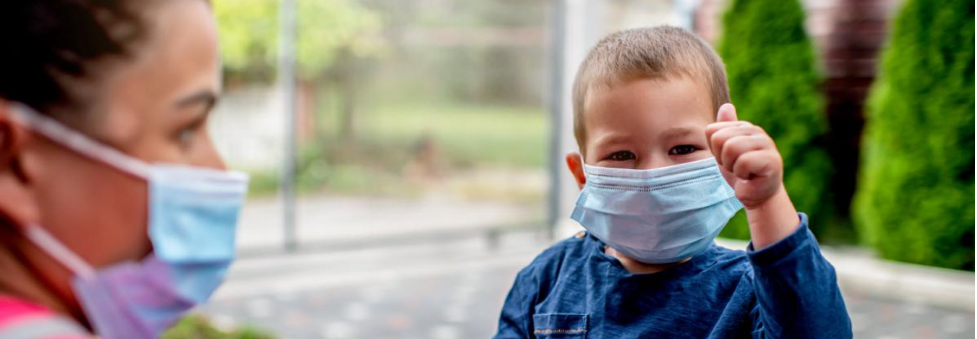
Department of Health & Human Services, Office of Child Care | January 2021 The COVID-19 pandemic has swiftly and substantially affected the social and emotional health of children, especially those experiencing multiple hardships. As the pandemic has spread across the United States, many children are experiencing widespread disruptions in daily life. Young children are reacting to stress as their parent and caregiver routines change. Children may have strong feelings of fear, worry, sadness, and anger about the pandemic and related issues that impact behavior at home and in child care.
To address these issues, the Office of Child Care (OCC) has a new initiative to further integrate social and emotional support strategies in child care's mixed delivery system. A Resource Guide for Developing Integrated Strategies to Support the Social and Emotional Wellness of Children highlights promising strategies and provides information about how some CCDF grantees have already leveraged partnerships and funding to support implementation success.
Added: Feb 2021
Responsive Classroom: Want Positive Behavior? Use Positive LanguageResponsive Classroom is an evidence-based approach to elementary and middle school teaching that focuses on the strong link between academic success and social-emotional learning (SEL).
Independent research has found that the
Responsive Classroom approach is associated with higher academic achievement in math and reading, improved school climate, and higher-quality instruction. It has been described by the
Collaborative for Academic, Social, and Emotional Learning (CASEL) as one of the most “well-designed evidence-based social and emotional learning (SEL) programs”.
Added: Apr 2017
San Francisco’s El Dorado Elementary Uses Trauma-Informed & Restorative Practices"We're trying to change the school culture," by teaching educators about the underlying neurobiology of trauma, El Dorado's principle explains. "When we see aggravating behavior in a kid and ask the question, 'What has happened to you?' instead of 'What's wrong with you?', that's the fundamental reframe. This reframe helps give the behavior a context, engenders compassion, and helps us respond more effectively."
Added: Feb 2015
Self-Regulation and Toxic Stress: A Series of Reports from the Office of Planning Research and Evaluation and the Frank Porter Graham Child Development InstituteThe Frank Porter Graham Child Development Institute (FPG) was founded in 1966 by a small group of scientists who had a vision—to conduct research that would make a difference in children's lives, support families, and inform public policy.
- Self-Regulation and Toxic Stress: Foundations for Understanding Self-Regulation From an Applied Developmental Perspective
This is the first in a series of four inter-related reports titled Self-Regulation and Toxic Stress. The first report, Foundations for Understanding Self-Regulation from an Applied Developmental Perspective, provides a comprehensive framework for understanding self-regulation in context, using a theoretical model that reflects the influence of biology, caregiving, and the environment on the development of self-regulation.
- A Review of Ecological, Biological, and Developmental Studies of Self-Regulation and Stress
The second reportprovides a cross-disciplinary review of research on the relationship between stress and self-regulation.
- A Comprehensive Review of Self-Regulation Interventions From Birth Through Young Adulthood February 2016
The third report describes results of a comprehensive review of self-regulation interventions from birth through young adulthood and summarizes the level of evidence for different interventions across age groups and outcome domains. In this report, we provide details on the methodological approach and data findings, including figures with detailed descriptions for the reader who is interested in the evidence base supporting our conclusions. These conclusions are repeated in our fourth report, Implications for Programs and Practice, with a more applied summary of the results organized by their implications for different types of programs. This third report therefore provides a more technical reference for the fourth report.
- Self-Regulation and Toxic Stress Report 4: Implications for Programs and Practice December 2, 2016
The fourth and final report is targeted specifically towards program administrators and practitioners. This report reviews the key concepts for understanding self-regulation, including the relationship between stress and self-regulation. Additionally, it summarizes principal findings from a comprehensive review of self-regulation interventions. Finally and most importantly, it addresses how current theory and knowledge of self-regulation may apply to programs and practitioners serving children and youth in different developmental groups from birth through young adulthood. A discussion of the report is found on the FPG website
Added: Sep 2016 | Updated: Feb 2019
Sesame Street in Communities-Especially for Families of Children with AutismWearing masks, interacting on video chats, and adjusting to frequent changes in routines—all can be especially tough for children with autism. Here are resources to help children and families cope with the challenges of living in the time of COVID-19.
Added: Oct 2021
Sesame Street in Communities-Health Emergencies – Caring for Each other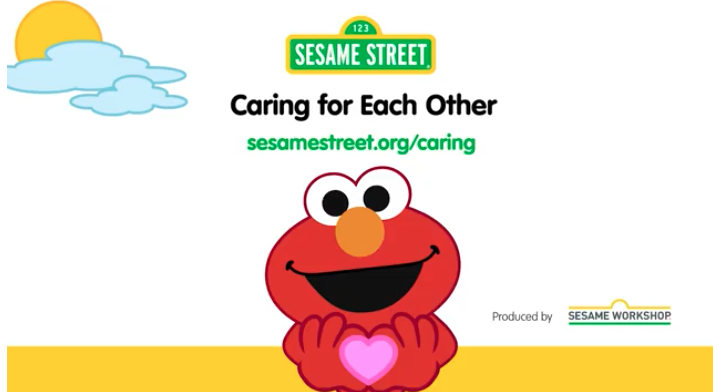
This set of workshops and activities can benefit families and child care providers as we are transitioning into new routines and more interaction with friends, neighbors and the general public. Changes can be awkward and scary if we don’t talk about what to expect and how we are feeling. These resources alert you to topics and situations that might be addressed to help you and your child adjust to changes. The workshops include instructions for interactive activities, a video to watch with children, articles and activities for kids. Here are some sample workshops that might be helpful:
See the menu of workshop options on the Health Emergencies page
Added: Oct 2021
Stop BullyingStopBullying.gov provides information from various government agencies on what bullying is, what cyberbullying is, who is at risk, and how you can prevent and respond to bullying.
When adults respond quickly and consistently to bullying behavior they send the message that it is not acceptable. Research shows this can stop bullying behavior over time.
Parents, school staff, and other adults in the community can help kids prevent bullying by talking about it, building a safe school environment, and creating a community-wide bullying prevention strategy.
Added: Sep 2018 | Updated: Feb 2019
Substance Abuse and Mental Health Services Administration (SAMHSA)SAMHSA's "Caring for Every Child's Mental Health" public awareness effort was created in 1994 with the mission to increase awareness around children's mental health. The "Caring for Every Child's Mental Health" team works to support SAMHSA-funded sites through the strategic use of social marketing and communications strategies. The overarching purpose of the team is to stimulate support for a comprehensive system of care approach to children's mental health services.
Added: Mar 2015
Talk with Me Baby
Published: Sep 2015 | 2:38 minutes
The team behind Talk With Me Baby™ is a collaboration of six leadership organizations, all working to bring the concept of language nutrition into public awareness and educate caregivers on the importance of talking with their baby every day, in an effort to close the word gap. Talking with your baby helps grow your baby’s brain. Learn how early exposure to language can help a child build vocabulary, communicate better with adults, be ready for kindergarten and develop an essential life skill: the ability to read by the end of third grade.
Added: Nov 2016
Talking is Teaching: Talk, Read, Sing
"Talking is Teaching: Talk, Read, Sing" is a campaign of Too Small to Fail in partnership with various organizations that are dedicated to improving early childhood development. It offers the free downloadable
Sesame Street Family Guide: Talking is Teaching available in English and Spanish. It helps caregivers and parents fill each day with words, stories, songs … and love. Inside are tips and activities around talking, reading and singing with children and Milestone Cards to use as the child grows.
Added: Mar 2015 | Updated: Feb 2019
Technical Assistance Center on Social Emotional Intervention for Young Children (TACSEI)The Technical Assistance Center on Social Emotional Intervention for Young Children, also known as TACSEI, is a five-year grant made possible by the
U.S. Department of Education, Office of Special Education Programs. TACSEI takes the research that shows which practices improve the social-emotional outcomes for young children with, or at risk for, delays or disabilities and creates FREE products and resources to help decision-makers, caregivers, and service providers apply these best practices in the work they do every day. Most of these free products are available right here on the website for you to view, download and use.
Added: Apr 2015
The Feeling Words Game, Great Schools!Each of these kids has a story to tell about a time they felt something deeply. Watch these videos with your child and see if you can guess which emotions they’re describing.
Added: Mar 2022
The Hidden Way That Kids Learn Empathy (and How Parents Can Help)How do children learn the skill of taking another’s perspective? Is it age related or can what parents do make a difference in learning empathy? See the video and read the article to find out about “Simple Ways to Help Kids Understand the Feelings of Others.”
Added: Oct 2017
The Pyramid Model and Inclusion: “Voices from the Field” Interview with Nancy Thompson and Janine Figiel from Jolly ToddlersIn this interview with the director and assistant director of a high quality private preschool program explain how implementing the Pyramid Model/ PBIS (Positive Behavior Intervention and Support) improved the overall climate and quality of their inclusive program.
Added: Jun 2018
UC Davis MIND InstituteThe M.I.N.D. Institute is a collaborative international research center, committed to the awareness, understanding, prevention, care and cure of neurodevelopmental disorders.
With a staff of over 250, multiple interdisciplinary teams are discovering new ways to prevent, diagnose, treat and eventually cure neurodevelopmental disorders. Through a process known as translational research, the teams use rigorous testing and clinical trials to transform new scientific findings into innovative treatments.
Added: Apr 2015
Understanding and Facilitating Preschool Children’s Peer Acceptance.Kemple, K.M. (1992).
Added: Apr 2015
Understood : For Learning and Attention IssuesParents want the best for their children. We do, too. For the first time ever, 15 nonprofit organizations have joined forces to support parents of the one in five children with learning and attention issues throughout their journey.
With the right support, parents can help children unlock their strengths and reach their full potential. With state-of-the-art technology, personalized resources, free daily access to experts, a secure online community, practical tips and more, Understood aims to be that support.
Added: Mar 2018
Untangling the Terms and Skills Related to Executive Function and Self-Regulation in Early ChildhoodBased on a thorough review of the existing literature, this report outlines key differences and similarities among various executive function and other regulation-related skills in research. Those differences and similarities are then presented in a visual map to illustrate relationships among these skills. The purpose of the framework is to help stakeholders in early learning and child development consider and articulate research, program, and policy recommendations regarding executive function and other regulation-related skills with more accuracy and transparency.
Added: Jan 2017
US Department of Health & Human Services (USDHHS): Administration for Children & Families: Early Childhood Development
- Reducing suspension and Expulsion Practices in Early Childhood Settings
Recent data indicate that expulsions and suspensions regularly occur in preschool settings. This is a problematic issue given the well-established research indicating that these practices can influence a number of adverse outcomes across development, health, and education. In addition, stark racial and gender disparities exist in these practices, with young boys of color being suspended and expelled at much higher rates than other children in early learning programs. These trends warrant immediate attention from the early childhood and education fields. The U.S. Departments of Health and Human Services and Education issued a policy statement and recommendations to assist states and public and private early childhood programs in partnering to prevent and severely limit expulsions and suspensions in early learning settings. The effort, part of President Obama's My Brother's Keeper initiative, encourages states, early childhood programs, and families to partner in preventing, reducing, and eventually eliminating the expulsion and suspension of young children from early learning programs.
Added: Sep 2016
Useable Knowledge: The Brain Changing Power of ConversationFeb 2018
For parents, daycare providers, and early educators, new research describes a simple and powerful way to build children's brains: talk with them, early and often.
Added: Mar 2018
Vermont Early Childhood Suspension-Expulsion Resources: An Annotated Collection of Free MaterialsThis annotated collection of free resources for addressing issues of suspension and expulsion in children from birth through Grade 3 also includes resources for use outside Vermont.
Added: Feb 2017
Vroom Brain BuildingVroom is an innovative, new parent engagement resource. It is a free, mobile app designed for young parents. NOT a commercial product, it was developed by philanthropic funding in consultation with IDEO, one of the world's leading design firms. It has been field tested with real parents.
Vroom provides young parents encouragement and tips on ways to stimulate their child's brain development, as they go throughout their normal day. It is available in English and Spanish. See the video on the home page to learn more, then download the Vroom app and get your daily Vroom video on your smart phone for daily brain building on the go!
Added: Sep 2016
What’s Your Child’s Learning Style?Different children learn in different ways, using their sense of sight, hearing, or touch to master new information. To find out whether a child is primarily a visual, auditory, or physical learner, take this quiz. Then read on to learn how to use this information to help the child do better in school.
Added: Apr 2015
Zero to Three
Zero to Three is a national, nonprofit organization dedicated solely to advancing the healthy development of babies and young children. Zero to Three disseminates key developmental information, trains providers, promotes model approaches and standards of practice, and works to increase public awareness about the significance of the first three years of life.
-
Additional Resources from Zero to Three
- Developing Self-Control From 12-24 Months
Toddlers have minds of their own and strong feelings that they express with gusto. “No!” becomes a favorite word and a powerful way to assert their independence. Learn ways to help your toddler learn self-control from 12-24 months.
- Challenging Behavior Resources
- Early Childhood Mental Health
Babies and young children thrive when they are cared for by adults that are “crazy about them!” (Bronfenbrenner, 1976 1). Responsive relationships with consistent primary caregivers help build positive attachments that support healthy social-emotional development. These relationships form the foundation of mental health for infants, toddlers and preschoolers. This site directs you to resources supporting healthy social emotional development of very young children.
- Baby Brain Map
The Brain Map was adapted in 2006 by ZERO TO THREE from BrainWonders, a collaborative project (1998-2001) between Boston University School of Medicine, Erikson Institute and ZERO TO THREE.
- Cope After Exposure to a Traumatic Event
- The Magic of Everyday Moments video series
Each video shows in a clear and compelling way how parents can nurture key skills and attributes children need to be eager, competent learners and to form strong, healthy connections with others as they grow—all through everyday interactions and routines!
- Celebrating Your Child's Lies
- Strong Evidence Against Spanking
Although controversial, many consider spanking an acceptable form of discipline. However, studies of more than 160,000 children show connections to poor outcomes, specifically: aggression, antisocial behavior, mental-health problems, negative parent–child relationships, impaired cognitive ability, low self-esteem and more.
- Building a Brain from US News and World Report
- Tuning In: Parents of Young Children Tell Us What They Think, Know and Need
ZERO TO THREE, in partnership with the Bezos Family Foundation, conducted a comprehensive research effort, including a series of in-home discussions and a large national parent survey with a diverse range of parents of children from birth to 5. Our findings provide brand new insights about the challenges parents face, what they do and do not understand about early childhood development, and what they want and need to be the best parents possible.
- Let’s Talk About It: 5 Ways to Build Babies Language and Communication Skills
- Early Childhood Mental Health Consultation: Policies and Practices to Foster the Social-Emotional Development of Young Children
2016
The new ZERO TO THREE publication, “Early Childhood Mental Health Consultation: Policies and Practices to Foster the Social-Emotional Development of Young Children” provides an overview of early childhood mental health consultation (ECMHC), current issues in the field, and possible future directions. The paper also provides a snapshot of current programs across the nation and highlights some of the challenges and innovations that are shaping the field. Thirteen states are profiled, underscoring the variability of how ECMHC programs are funded, managed, implemented and staffed. A list of guiding questions are provided for states to consider in designing and creating their ECMHC program.
- Preventing Expulsion from Preschool and Child Care
ZERO TO THREE provides you with a myriad of resources on how to better support social and emotional development to prevent expulsion of young children from educational settings, including videos you can use in your own presentations.
Select link for more information on ZERO TO THREEAdded: Jun 2016 | Updated: Feb 2019
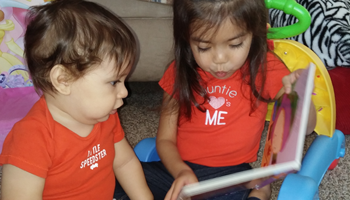


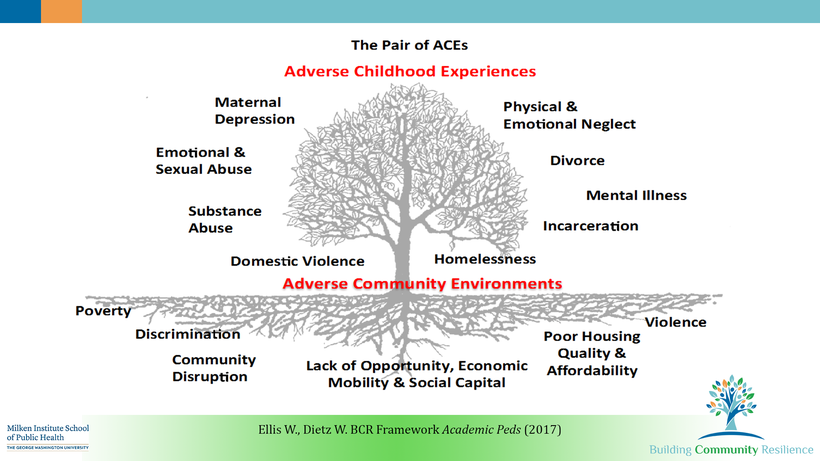 This graphic illustrates the Adverse Childhood Experiences and Adverse Community Environments that contribute to toxic stress and long term consequences for the brain and overall health.
This graphic illustrates the Adverse Childhood Experiences and Adverse Community Environments that contribute to toxic stress and long term consequences for the brain and overall health. Two kindergarteners at Cherokee Point Elementary School in San Diego’s City Heights neighborhood get into a fight on the playground. Their teacher sends them to the principal’s office. Instead of suspending or expelling the six-year-olds, as happens in many schools, Principal Godwin Higa ushers them to his side of the desk. He sits down so that he can talk with them eye-to-eye and quietly asks: “What happened?” He points to one of the boys. “You go first.”
Two kindergarteners at Cherokee Point Elementary School in San Diego’s City Heights neighborhood get into a fight on the playground. Their teacher sends them to the principal’s office. Instead of suspending or expelling the six-year-olds, as happens in many schools, Principal Godwin Higa ushers them to his side of the desk. He sits down so that he can talk with them eye-to-eye and quietly asks: “What happened?” He points to one of the boys. “You go first.”  Many people have been asking for a short video that explains the CDC-Kaiser Permanente Adverse Childhood Experiences Study, the groundbreaking epidemiological research that revealed the link between childhood trauma and the adult onset of chronic disease, mental illness, violence and being a victim of violence.
Many people have been asking for a short video that explains the CDC-Kaiser Permanente Adverse Childhood Experiences Study, the groundbreaking epidemiological research that revealed the link between childhood trauma and the adult onset of chronic disease, mental illness, violence and being a victim of violence. Adverse Childhood Experiences (ACEs) are those that directly harm a child; such as physical, verbal and sexual abuse or physical or emotional neglect – as well as those that affect the environment where they grow up; including parental separation, domestic violence, mental illness, alcohol abuse, drug use or incarceration.
Adverse Childhood Experiences (ACEs) are those that directly harm a child; such as physical, verbal and sexual abuse or physical or emotional neglect – as well as those that affect the environment where they grow up; including parental separation, domestic violence, mental illness, alcohol abuse, drug use or incarceration.
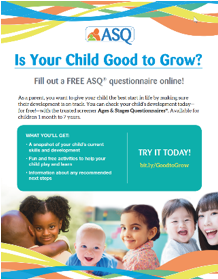 Encourage families with children from 1 month up to 7 years old to check out their child’s development free online with the research version of the new ASQ-4. Child care providers will gain access to free resources to support their efforts in screening and families gain access to resources to support their child’s development.
Encourage families with children from 1 month up to 7 years old to check out their child’s development free online with the research version of the new ASQ-4. Child care providers will gain access to free resources to support their efforts in screening and families gain access to resources to support their child’s development. 



 The Center of Excellence for IECMHC helps communities support the success of the next generation by increasing access to evidence-based IECMHC.
The Center of Excellence for IECMHC helps communities support the success of the next generation by increasing access to evidence-based IECMHC.

 Did you see the video of the father and his baby on social media talking to one another? It was not only entertaining, but also a great example of “serve and return.” The Center for the Developing Child is taking full advantage of this video and has included the video in it’s framework for explaining ‘serve and return’.
Did you see the video of the father and his baby on social media talking to one another? It was not only entertaining, but also a great example of “serve and return.” The Center for the Developing Child is taking full advantage of this video and has included the video in it’s framework for explaining ‘serve and return’.
 Learn how to empower and support families so that they can engage in meaningful conversations with their young children and advance their language and lifelong learning. The eight-session "Talk With Me Baby" course, which includes multimedia content from the Center on the Developing Child, is open to the public and available through Cox Campus and Read Right from the Start, a program of the Rollins Center for Language & Literacy.
Learn how to empower and support families so that they can engage in meaningful conversations with their young children and advance their language and lifelong learning. The eight-session "Talk With Me Baby" course, which includes multimedia content from the Center on the Developing Child, is open to the public and available through Cox Campus and Read Right from the Start, a program of the Rollins Center for Language & Literacy.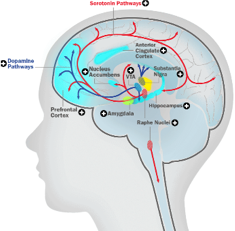






 Happy and also sad. Excited but nervous too. Feeling friendly with a little shyness mixed in. Mixed feelings are natural, but they can be confusing. There are different kinds of happy—the quiet kind and the “noisy, giggly, jump and run” kind. And there are conflicting feelings, like proud and jealous, frustrated and determined. With gentle messaging and charming illustrations, a little girl talks about her many layered feelings, ultimately concluding, “When I have more than one feeling inside me, I don’t have to choose just one. I know that all my feelings are okay at the same time.” A special section for adults presents ideas for helping children explore their emotions, build a vocabulary of feeling words, know what to do if they feel overwhelmed, and more.
Happy and also sad. Excited but nervous too. Feeling friendly with a little shyness mixed in. Mixed feelings are natural, but they can be confusing. There are different kinds of happy—the quiet kind and the “noisy, giggly, jump and run” kind. And there are conflicting feelings, like proud and jealous, frustrated and determined. With gentle messaging and charming illustrations, a little girl talks about her many layered feelings, ultimately concluding, “When I have more than one feeling inside me, I don’t have to choose just one. I know that all my feelings are okay at the same time.” A special section for adults presents ideas for helping children explore their emotions, build a vocabulary of feeling words, know what to do if they feel overwhelmed, and more.

 The Head Start Early Childhood Learning & Knowledge Center (ECLKC) helps young children from low-income families prepare to succeed in school through local programs. Head Start and Early Head Start programs promote children's development through services that support early learning, health, and family well-being.
The Head Start Early Childhood Learning & Knowledge Center (ECLKC) helps young children from low-income families prepare to succeed in school through local programs. Head Start and Early Head Start programs promote children's development through services that support early learning, health, and family well-being.










